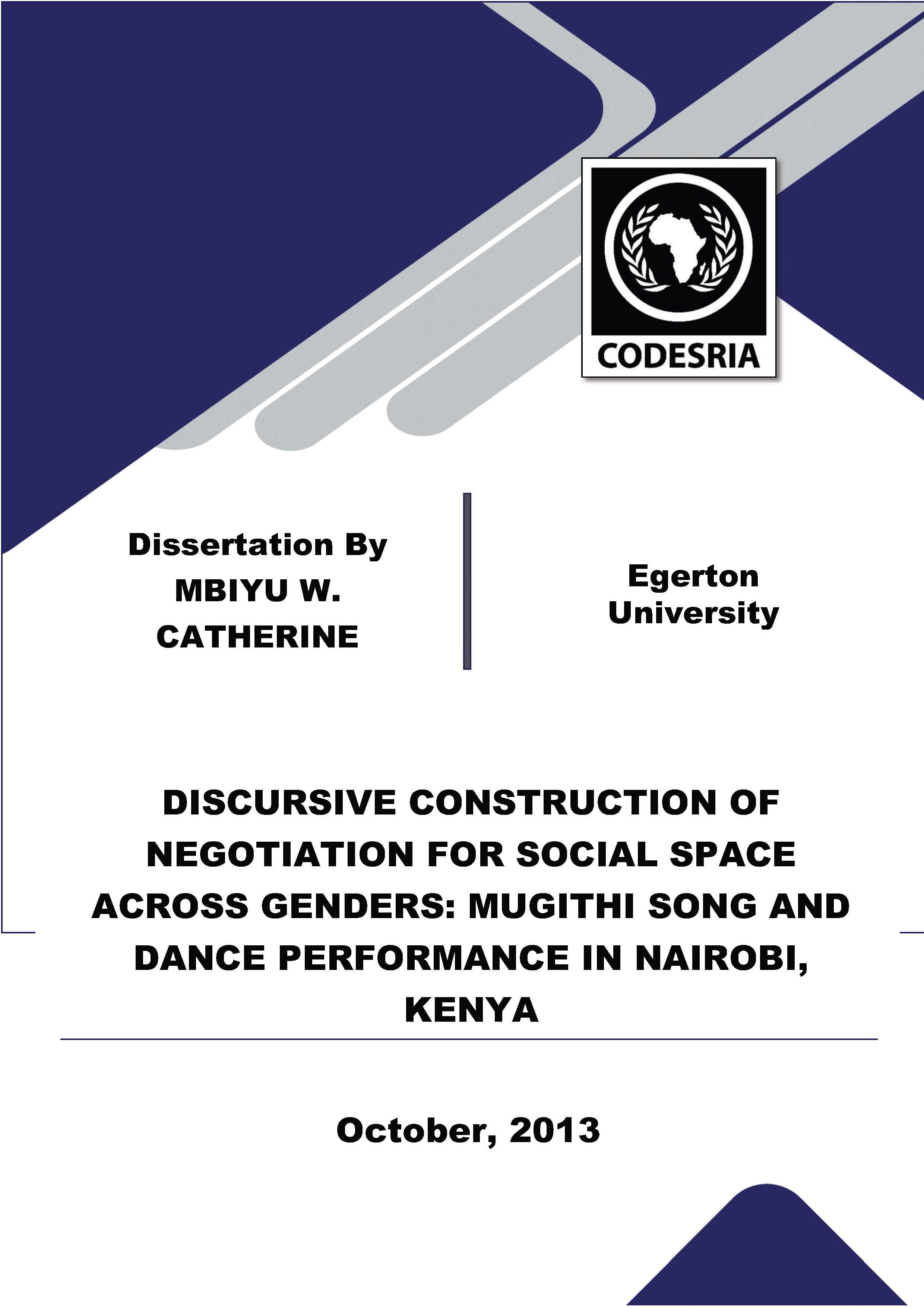DISCURSIVE CONSTRUCTION OF NEGOTIATION FOR SOCIAL SPACE ACROSS GENDERS: MUGITHI SONG AND DANCE PERFORMANCE IN NAIROBI, KENYA
Keywords:
NEGOTIATION, SOCIAL SPACE, DANCE PERFORMANCE, NAIROBISynopsis
This study set out to establish the social relations formed in the discourse of Mugithi songs in order to illustrate how men and women negotiate for social space. Negotiation for social space can be a difficult process especially for women due to gender inequality and influence from the largely patriarchal source culture. Mugithi song and dance performance has come to be recognised as an important genre in social entertainment circles in the Kenyan society but there has not been any serious attempt to investigate and analyse the genre and what it represents in regard to sexuality. This study therefore identified and analysed discourse topics in Mugithi songs which show changing trends in the negotiation for social space across genders, examined the discursive strategies embedded in the Mugithi songs vis a vis gender relations and established the social relations formed in the context of the Mugithi song and dance performance. This study was guided by Wodak’s Discoure Historical Approach. Purposive sampling procedure was used to get the sample of three male Mugithi artists and thirty participants who appreciate the themes represented in the songs. The data for the study consisted of twelve Mugithi songs which were purposively selected on the basis of their currency and popularity and responses to the themes in the songs from the participants in the entertainment clubs where the purposively selected Mugithi oral artists performed in Nairobi
city. Data was collected using participant observation and focus group discussions and performances were recorded using tape recorder and field notes. Qualitative analysis of this data was undertaken. It was found that many of the Mugithi songs examined defined women as deceitful, unfaithful, lustful, hence denigrating femininity and promoting the male gender. However, the context of the Mugithi song and dance performance provided a venue and means of negotiating and
accessing power for both men and women and hence gave the women the opportunity to express their views which were closely associated with resistance to oppressive ideologies. This study contributes to Discourse Analysis and Sociolinguistic studies in which particularised socio-cultural contexts may impinge upon language structure and use.
Downloads






